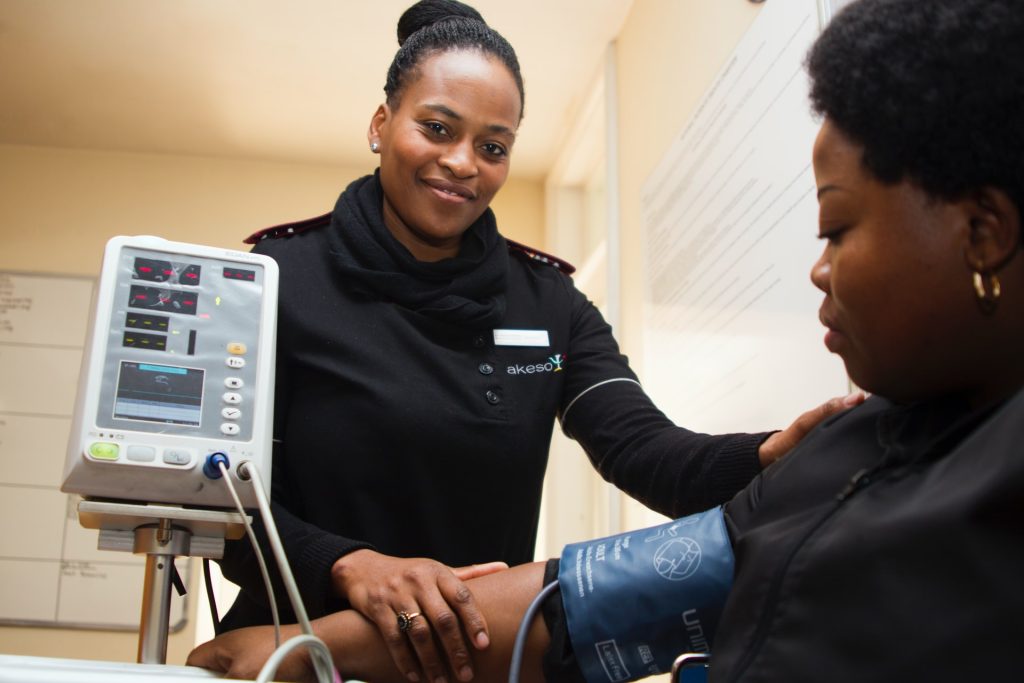Helping our Nation’s Healthcare Workers Deliver More Accessible Healthcare

By Damian McHugh, Chief Marketing Officer, Momentum Health
In his 2025 Budget Speech on 21 May, Finance Minister Enoch Godongwana reaffirmed government’s commitment to strengthening South Africa’s healthcare system, announcing a R20.8 billion boost to provincial health budgets. This includes hiring 800 post-community service doctors, addressing shortages of essential goods and services, and settling unpaid obligations.
While this is a welcome step toward easing pressure on healthcare workers, especially in underserved areas, it also presents a vital opportunity for public-private collaboration. The question now is whether this investment will be enough to tackle the deeper, systemic challenges facing our healthcare workforce and infrastructure.
In the ever-evolving landscape of healthcare in South Africa, the rising demand for healthcare services, coupled with a shortage of skilled workers, creates a complex challenge. There is an urgent need to not only support but also empower healthcare workers across the country.
According to the World Health Organisation (WHO), the shortage of skilled health professionals in South Africa is projected to be 97 000 by 20251. This challenge not only disrupts the delivery of quality care but also impacts the overall wellbeing of communities. As advocates for more accessible healthcare for more South Africans, we believe that innovative solutions are key to closing the gap, valuing and retaining current talent, and by doing so, edging us closer towards a healthier nation.
The growing need for healthcare workers is largely driven by factors such as our aging population, increased prevalence of chronic disease, and an uneven distribution of healthcare workers across provinces, with rural areas being particularly underserved2 . In these areas, patients often experience long wait times and reduced access to specialised care. Additionally, healthcare professionals across provinces often face burnout and job dissatisfaction due to excessive workloads and inadequate support. Together, these challenges add pressure to an already strained system.
Embracing Greater Collaboration and Innovation
To address local needs and support healthcare professionals in delivering quality services, a multi-faceted approach is necessary. The first step is greater collaboration between the public and private sectors. These partnerships can address systemic challenges and drive meaningful improvements, thus strengthening infrastructure and expanding affordable health insurance.
In recent years, technology has emerged with strong promise to bridge various divides. We’ve seen first-hand through our Hello Doctor offering and Momentum App how technologies such as telemedicine and emerging technology can enhance care delivery, efficiency and accessibility. These technologies can bridge geographical barriers, enabling healthcare professionals to provide remote consultations, monitor patient progress and access critical health information in real-time.
Building on the promise of technology, emerging technologies like AI can play a significant role in aiding healthcare professionals with decision-making, diagnostics, and patient management. AI-powered solutions can analyse vast amounts of data quickly, identify patterns, and provide recommendations to support evidence-based care. This can lead to more accurate diagnoses, personalised treatment plans, and improved patient outcomes.
Building a Sustainable Workforce
South Africa’s healthcare sector is one of the most stressful in the world, with the public sector particularly under severe strain. Staffing shortages exacerbate this stress, and so supporting healthcare professionals in their roles is just as important as implementing innovative technologies. Fostering a positive work environment and ensuring job satisfaction are key focus areas to improving care delivery. A supportive workplace culture not only enhances employee retention but also promotes better patient outcomes.
Prioritising Mental Health and Wellness
In addition to structural and technological improvements, we must also recognise the critical role of mental health and wellness in sustaining our healthcare workforce. Chronic stress, emotional fatigue, and trauma exposure are daily realities for many healthcare workers. Without adequate mental health support, these pressures lead to burnout, absenteeism, and crippling fatigue.
In recent years, it has become clear that wellness extends beyond physical health. As a result, a visible shift has occurred across the healthcare sector to provide wellness solutions that offer counselling services, resilience training, and mindfulness programmes tailored to the unique challenges faced by healthcare professionals. By embedding mental wellness into the core of workforce support strategies, we not only protect the individuals who care for our nation but also enhance the quality and consistency of the care they provide.
Retaining healthcare professionals is not only critical to the future of healthcare delivery in South Africa, but also to the future health of its people. Healthcare institutions must implement proactive strategies that prioritise the wellbeing of their staff.
Bridging the healthcare workforce gap in South Africa requires investing in innovation, training, and supportive work environments. Building a sustainable healthcare workforce capable of meeting the needs of our nation will take our collective effort to support and empower the sector. Together, we can create a healthier South Africa for generations to come.


